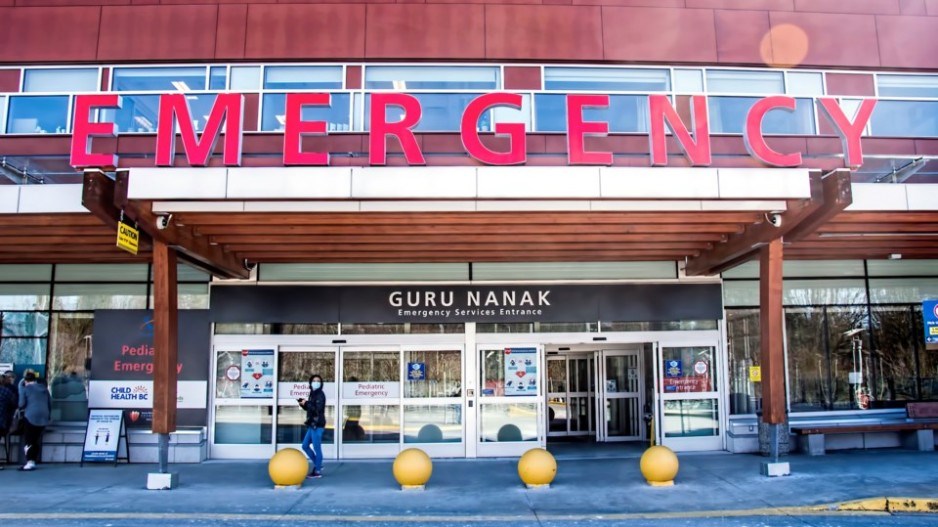In the latest survey conducted by Research Co., practically one in five British Columbians (19 per cent) cite health care as the most important issue facing the province. Medical services are second on the list of concerns, below housing, homelessness and poverty (40 per cent), and barely ahead of the economy and jobs (18 per cent).
When we took a deeper dive into health care, child care and education last month, practically half of British Columbians are ambivalent about the system. For 49 per cent of residents (down six points since November 2023), there are some good things in health care, but some changes are required. By a two-to-one margin, British Columbians are more likely to say that the system warrants a complete rebuild (31 per cent, up one point) than to believe it only requires minor modifications (16 per cent, up six points).
British Columbians aged 55 and over – who play a large role in election outcomes on account of their superior turnout – are particularly upset. More than two in five (43 per cent) are longing for significant changes in the system. Skepticism is also high in two areas that usually send distinct types of lawmakers to the legislative assembly: Southern B.C. (45 per cent) and Vancouver Island (38 per cent).
In years past, issues such as bureaucracy and poor management have plagued the health-care system in provinces like Alberta and Ontario. This year, 42 per cent of British Columbians (up two points) say the biggest setback is a shortage of doctors and nurses, followed by long waiting times (23 per cent, up one point) and inadequate resources and facilities (nine per cent, down one point).
The notion of receiving medical services privately and at a cost remains popular with some residents, with 41 per cent of British Columbians (down five points) saying they are “definitely” or “probably” willing to pay out of their own pocket to have quicker access to medical services that currently have long waiting times, and 39 per cent (up one point) willing to travel to another country.
British Columbians aged 55 and over are significantly less likely to consider a private option here (38 per cent) or abroad (28 per cent) than their younger counterparts. This is an obstacle for the expansion of private services in the province. The group that is more concerned about health-care delivery does not find a two-tier system particularly appealing.
In the first week of the campaign, child care was missing from the list of announcements from the two main contending parties. In June, BC United Leader Kevin Falcon vowed to provide direct financial subsidies to parents and cap child-care costs at $10 a day for lower and middle-class families. This was the last direct mention of child care in the context of the provincial election: a pledge from a party that is no longer fielding candidates.
British Columbians remain committed to the revitalization of child care. More than seven in ten (72 per cent) want the provincial government to continue to invest in building a flexible child-care system that costs families no more than $10 a day, and practically four in five (78 per cent) are convinced that employers benefit from investments in child care because more parents can go to work.
On education, there is province-wide consensus on banning the use of mobile phones during instructional time in K-12 classrooms (77 per cent) and almost half of British Columbians (49 per cent) favour the use of “SOGI-Inclusive Education”, which raises awareness of and welcomes students of all sexual orientations, gender identities and family structures.
The challenges to connect on some of these issues during the final stages of the campaign will be enormous for both the BC New Democratic Party (NDP) and the Conservative Party of BC. Any hint of the privatization of medical services will turn off voters aged 55 and over, precisely the group that is more concerned about health care. On education, British Columbians aged 18-34 – who are looking at the BC Conservatives more seriously than in past electoral processes – do not want to be bogged down in ideological wars.
Child care is different. While it may appear to be an issue that affects parents during a limited span, there is a high level of support for the proper implementation of a truly universal $10 a day system. British Columbians understand that the concept works not just for families, but also to foster employment at a time of economic anxiety.
Mario Canseco is president of Research Co.
Results are based on an online study conducted from Sept. 5-7, 2024, among 801 adults in British Columbia. The data has been statistically weighted according to Canadian census figures for age, gender and region in British Columbia. The margin of error—which measures sample variability—is +/- 3.5 percentage points, 19 times out of 20.





